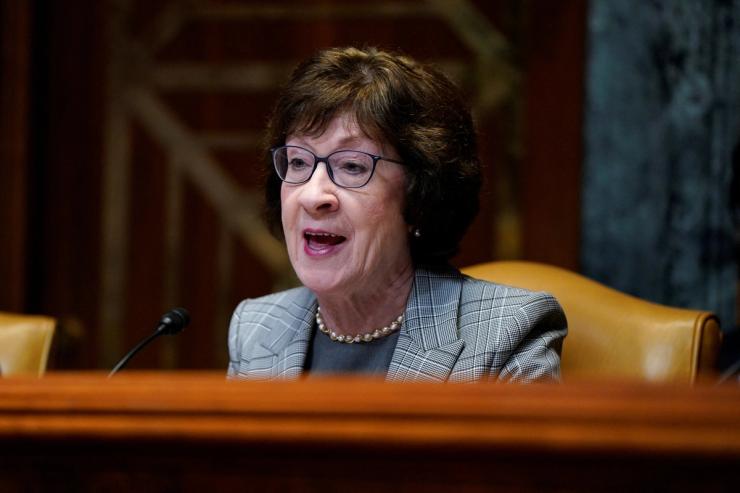The Scoop
Susan Collins is laying out the changes she wants made to President Donald Trump’s megabill as the Senate prepares to vote later this week: a far more gentle approach to her state’s health care providers and possibly a small tax increase on the very highest earners.
The Maine senator told Semafor on Wednesday that she wants a $100 billion stabilization fund for rural hospitals, a number far larger than the current proposal circulating in the Senate. She also wants to return to the House’s gentler proposal for the provider tax — a funding mechanism that helps finance Medicaid — and eliminate the big hit the tax would take in the Senate’s version of the party-line bill.
Collins also said she’s talking to some colleagues about allowing the top tax rate on very high earners — she suggested $100 million and above — to revert back to the pre-2017 tax rate of 39.6%.
“I’m discussing it with a few people. I don’t mean to imply receptivity by the leadership. But I’ve talked about it and, remember, President Trump talked about it,” Collins said in an interview.
For Collins, this is a pivotal moment both legislatively and politically. She has one of the toughest re-election races in the country next year and supports extending many of Trump’s 2017 tax cuts, including the larger standard deduction, the bigger child tax credit, and breaks for small businesses.
And Republican leaders want her to vote for the megabill — but they also have to balance the wishes of conservative members with those of moderates like Collins and Sen. Lisa Murkowski, R-Alaska.
Take the stabilization fund, which is supposed to help prevent rural hospitals from closing. Collins said she’s getting “mixed messages” on the $100 billion figure; some Republicans said a much lower number like $10 billion has also been proposed.
The fund’s size “isn’t the only problem,” Collins added.
Know More
Collins is not the only Republican looking to blunt the effect of the party-line legislation on hospitals back home. But as the Appropriations chair, one of the most senior senators, and a battleground-state incumbent, she has significant sway.
“The provider tax provisions that are far more draconian than the House are problematic as well, but the $100 billion dollar provider relief fund would help relieve some of the pressure, particularly on rural hospitals, nursing homes, community health centers,” Collins said.
When it comes to the provider tax, she added: “The House provisions are preferable. They have less of an impact on my state by a lot.”
Republicans are still debating how to change the bill to get it through the Senate and perhaps also the House by Trump’s preferred July 4 deadline. That involves both the Medicaid portion of the bill as well as the state and local tax deduction, which remain in flux.
Collins also said she wants to make sure Congress “immediately” addresses the potential triggering of Medicare cuts after passing the tax cuts legislation.
Asked about her vote on proceeding to the legislation, she said she’d “prefer that we take more time and try to sort through these extremely complicated issues.” For now though, GOP leaders say it’s full speed ahead this weekend.
Notable
- The Senate Finance Committee is circulating a $15 billion proposed hospital fund, according to Punchbowl News.


